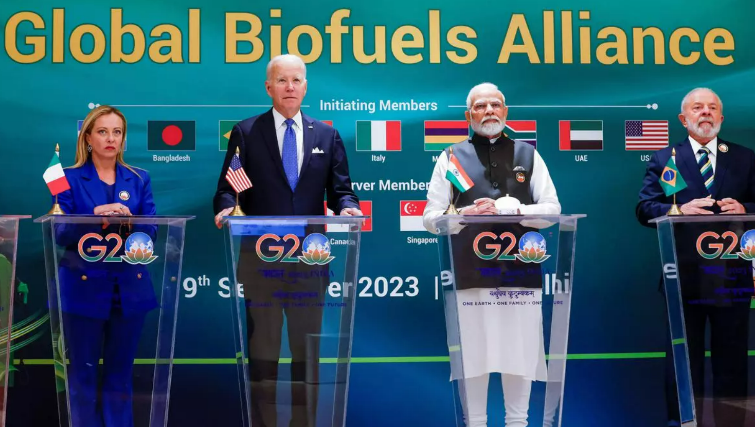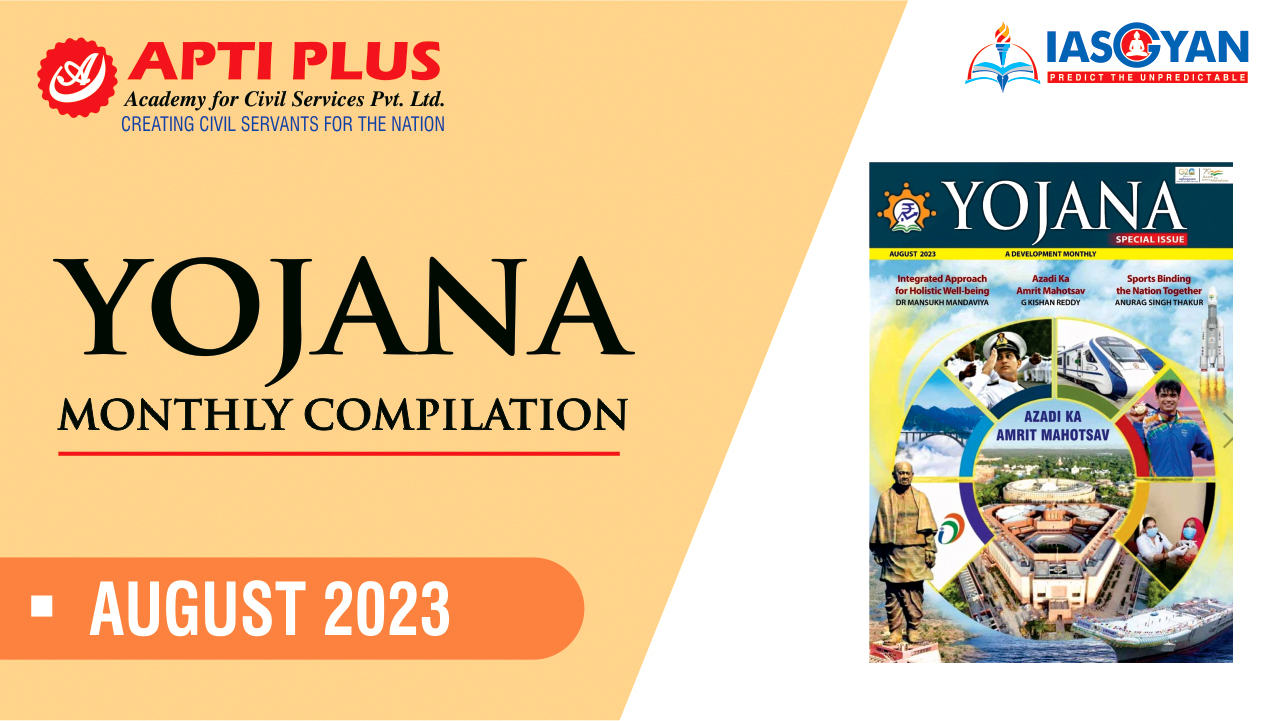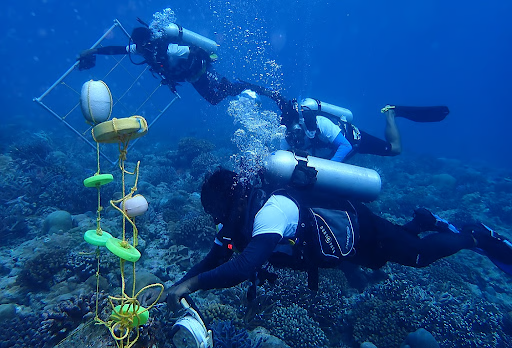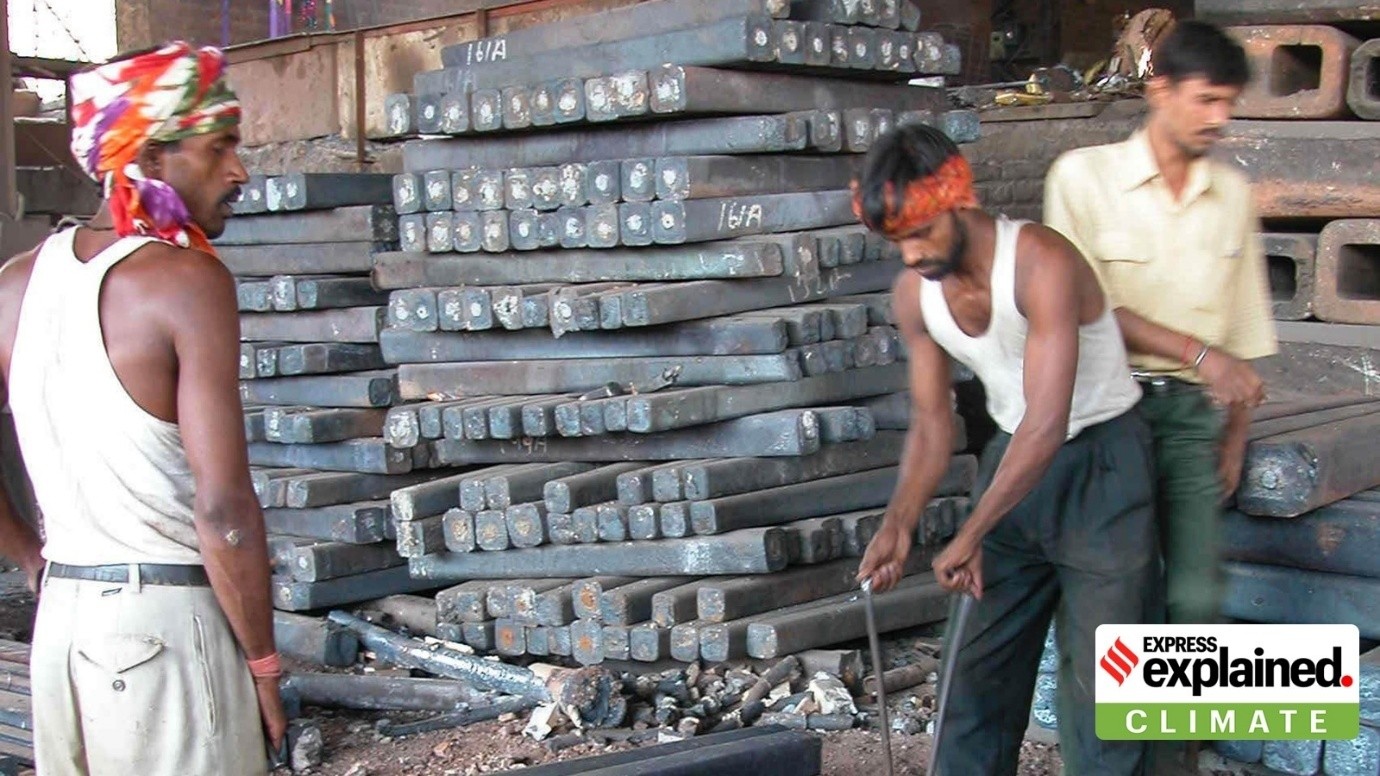Description

Disclaimer: Copyright infringement not intended.
Context
- Prime Minister Narendra Modi announced the launch of the Global Biofuels Alliance.
Details
Countries and Organizations
- A total of 19 countries and 12 international organizations have so far agreed to join the alliance, including both G20 members and non-member countries.
- Apart from India, Brazil, and the US, the other G20 member countries supporting the initiative are Argentina, Canada, Italy, and South Africa. Bangladesh, Singapore, Mauritius, and the UAE are the G20 invitee countries.
- The non-G20 interested in joining the alliance are Iceland, Kenya, Guyana, Paraguay, Seychelles, Sri Lanka, and Uganda and Finland. Further, World Bank, Asian Development Bank, World Economic Forum, World LPG Organization, UN Energy for All, UNIDO, Biofutures Platform, International Civil Aviation Organization, International Energy Agency, International Energy Forum, International Renewable Energy Agency, World Biogas Association are the interested international and multilateral organizations.
- China and oil producers Saudi Arabia and Russia have however decided deciding not to be part of the alliance.

Founding Members
- India, Brazil, and the US are the founding members of the alliance.
- The three founding members of alliance, the US, India and Brazil contribute about 85% of the global production and the 81% of the consumption of ethanol.
|
Biofuel Production and India’s Targets
The global ethanol market was valued at $99.06 billion in 2022 and is predicted to grow at a CAGR of 5.1% by 2032 and surpass $162.12 billion by 2032. According to estimates from the International Energy Agency (IEA), global biofuel production would need to triple by 2030 to put the world’s energy systems on track toward net zero emissions by 2050.
In its ambitious energy transition journey, India has committed to achieving carbon neutrality by 2070. India also has an ambitious biofuel roadmap. The government has advanced its target to achieve 20% ethanol blending in petrol by 2025-26 from an earlier target of 2030. The target of petrol supplies with 10% ethanol blending was achieved in June last year, ahead of the original schedule of November 2022.
|
Purpose
- Member countries intend to facilitate cooperation, on a voluntary basis, in intensifying the use of sustainable biofuels through strengthening collaboration between producers, consumers and interested countries, bolstering biofuels markets and encouraging the development of standards in the sector.
Note: With an eye on the Organization of the Petroleum Exporting Countries (Opec)-plus grouping -- where both Saudi Arabia and Russia are members -- the Indian-conceptualized alliance is being positioned as a global forum to help boost demand and technology transfer for the production of biofuels and enhance trade.
India is also looking at increasing its biofuel production through varied sources in a bid to cut its import dependence for fuel at a time when the ‘Opec+’ grouping has enforced successive production cuts.
Focus
- Being set up at par with the International Solar Alliance, the biofuel alliance’s focus is on accelerated adoption of biofuels, creating new biofuels, setting globally recognized standards, identifying global best practices, and ensuring industry participation.
Significance
- The launch of the Global Biofuels Alliance marks a watershed moment in our quest for sustainability and clean energy.
- The G20 Leaders' Declaration said that the member countries "recognize the importance of sustainable biofuels in our zero and low- emission development strategies, and note the setting up of a Global Biofuels Alliance".
|
PRACTICE QUESTION
Q. The launch of the Global Biofuels Alliance marks a watershed moment in our quest for sustainability and clean energy. Analyse.
|

https://www.livemint.com/industry/energy/pm-modi-launches-global-biofuels-alliance-11694267712942.html











